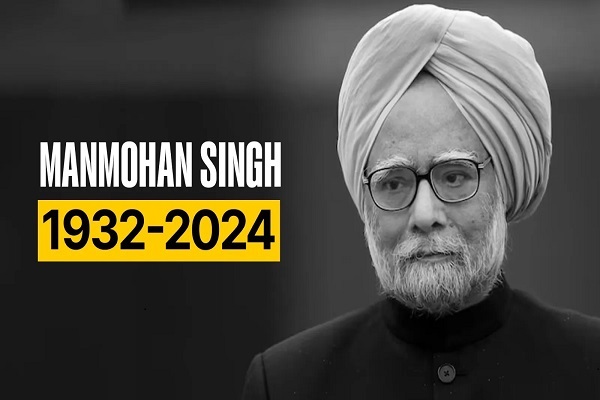Late Sardar Manmohan Singh, India’s 14th Prime Minister, is celebrated as a “gentle statesman.” An accomplished economist, he spearheaded India’s 1991 economic liberalization, transforming its global standing. As PM (2004–2014), his calm demeanor, integrity, and vision fostered inclusive growth and stability, leaving an enduring legacy of quiet, effective leadership in modern Indian history.
Manmohan Singh, widely regarded as the savior of India’s struggling economy during a critical juncture, passed away at the age of 92. As Finance Minister under Prime Minister P. V. Narasimha Rao, Singh spearheaded groundbreaking economic reforms that pulled the nation back from the brink of financial collapse. His legacy as a reformist economist and a gentle yet determined leader continues to inspire generations.
In his final press conference as Prime Minister, Singh presciently remarked, “History will be kinder to me.” These words have indeed rung true. Today, he is remembered as an astute statesman whose unwavering dedication to national progress transcended political differences. His contributions remain unmatched, even as he faced an era marred by allegations of corruption and policy paralysis.
A Legacy Rooted in Humility and Resilience
In a world where political leaders often seek immediate recognition, Singh stood apart with his quiet dignity and self-effacing nature. Despite enduring severe criticism during the UPA-II government for alleged scandals and inefficiency, Singh’s personal integrity remained unquestioned. A man of unblemished character, he faced relentless scrutiny not for his own actions but for the misdeeds of others. This period tested his resilience but also underscored his humility and strength of character.
Sanjaya Baru, Singh’s former media adviser and author of The Accidental Prime Minister, aptly noted, “He was certainly an accidental Prime Minister, but that did not prevent him from occupying the country’s most important chair with both dignity and great competence.”
From Modest Beginnings to Academic Brilliance
Manmohan Singh’s life story is nothing short of inspiring. Born in a remote village in Punjab, bereft of basic amenities like electricity and water, he rose to global prominence through sheer perseverance and intellect. After excelling at Cambridge and Oxford, he earned a reputation as a leading economist, eventually serving in pivotal roles in India’s economic policymaking.
Before assuming the Prime Minister’s office, Singh held key positions, including Chief Economic Adviser, Secretary of Economic Affairs, RBI Governor, Deputy Chairman of the Planning Commission, and Finance Minister. This stellar career laid the groundwork for the transformative reforms he later implemented.
The Economic Reforms of 1991: A Turning Point
As Finance Minister in 1991, Singh orchestrated a historic shift in India’s economic trajectory. Faced with a dire financial crisis, he championed liberalization, privatization, and globalization. These reforms dismantled the restrictive ‘Licence-Permit Raj,’ marking the end of India’s socialist-era policies and heralding a new era of economic dynamism. His courage to adopt bold policies during a time of uncertainty was instrumental in shaping modern India.
Leadership as Prime Minister: Visionary and Pragmatic
Manmohan Singh served as Prime Minister for two consecutive terms (2004–2014) during the Congress-led UPA government. Known for his simplicity and frugality, the gentle sardar with his signature blue turban became a symbol of quiet competence. One of his most notable achievements as PM was the landmark Indo-US nuclear deal in 2008, which bolstered India’s strategic relationship with the United States and enhanced its global standing.
A Lasting Legacy
Among Singh’s enduring contributions is the Right to Information (RTI) Act, a transformative tool empowering citizens with transparency in governance. His calm diplomacy, economic foresight, and principled leadership continue to shape India’s journey on the global stage.
Manmohan Singh’s life is a testament to the power of humility, intellect, and perseverance. As the nation reflects on his extraordinary journey, his legacy as an architect of economic reforms and a statesman of unparalleled integrity remains firmly etched in India’s history.#hydkhabar

